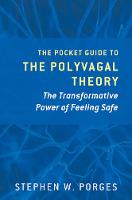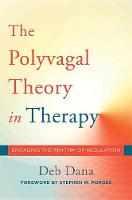Into the Darkest Places: Early Relational Trauma and Borderline States of Mind

Book Details
- Publisher : Routledge
- Published : April 2016
- Cover : Paperback
- Pages : 360
- Category :
Trauma and Violence - Category 2 :
Jung and Analytical Psychology - Catalogue No : 35131
- ISBN 13 : 9781782201229
- ISBN 10 : 178220122X
Also by Marcus West
Understanding Dreams in Clinical Practice
Price £24.99
There are currently no reviews
Be the first to review
This book explores the roots of borderline states of mind in early relational trauma and shows how it is possible, and necessary, to visit 'the darkest places' in order to work through these traumas. This is despite the fact that re-experiencing such traumas is unbearable for the patient and they naturally want to enlist the analyst in ensuring that they will never be experienced again. This is the backdrop for the extreme pressures and roles that are constellated in the analysis that can lead to impasse or breakdown of the analytic relationship.
The author explores how these areas can be negotiated safely and that, whilst drawing heavily on recent developments in attachment, relational, trauma and infant development theory, an analytic attitude needs to be maintained in order to integrate these experiences and allow the individual to feel, finally, accepted and whole.
The book builds on Freud's views of repetition compulsion and re-enactment and develops Jung's concept of the traumatic complex. It offers, in simple language, a contemporary integration of traditional and new theoretical paradigms and an innovative approach to this oldest and most intractable of psychoanalytic issues.
Reviews and Endorsements
‘Those of us working in the field of extreme abuse and trauma have slowly become aware of the paradigm shift such work demands. Different concepts or diagnoses of mental illness become less satisfactory when looked at through a trauma and relational lens. Coming from a Jungian base, Marcus West masterfully explores Jungian, Freudian, Kleinian and Winnicottian theories, as well as American object relations and current international trauma theory, both biological and clinical, in a compelling and respectful way. He uses the myth of Orpheus most beautifully to show how it is the affective response of the analyst that is needed to enter the darkest places, and in doing so he sheds emotional and academic light.’
- Valerie Sinason, editor of Trauma, Dissociation and Multiplicity: Working on Identity and Selves
‘Marcus West has written a book of profound insight into the internal workings of trauma within the psyche and its impact on all interpersonal relationships. This is a book that should be read by every psychotherapist who works with people suffering from early traumatic wounding to the self. It is a book thoroughly grounded in Jungian theory and importantly advances its practical applications.’
- Murray Stein, author of Soul: Treatment and Recovery
‘To shine a much-needed light on analytic practice with borderline states of mind, Marcus West comprehensively brings together neuroscience, infant research and trauma theory along with Jungian and psychoanalytic perspectives. He gives us a critique of salient historical ideas and methods as a launch pad for his own creative understanding and work with those suffering early relational trauma, known as "hidden" trauma. West is a skilful and talented analyst who has bravely sifted through the literature and developed his own in-depth approach grounded in his many years in the trenches.’
- Linda Carter, former US editor-in-chief of the Journal of Analytical Psychology
‘In this impressive and scholarly book, Marcus West offers a thoughtful reappraisal and integration of analytic theory, trauma theory, and relational theory. West draws on a wide range of research to argue that Jung’s concept of the complex is central to understanding trauma, in that it embodies both trauma-related internal working models, primitive responses to the trauma, and narcissistic defences. West suggests that the analytic relationship is the essential site for the reconstruction of early relational traumas, which are repeatedly experienced between analyst and patient in direct and reversed forms, and that the analytic attitude offers the best opportunity for the traumatic complex to be worked through and integrated.’
- Dr Jean Knox, Associate Professor, Clinical and Doctorate Programme, University of Exeter
About the Author(s)
Marcus West worked for Social Services and the NHS for a number of years – in an acute psychiatric in-patient unit, in a day centre running groups, and in an NHS psychotherapy department. During this time he worked with people with all kinds of mental health difficulties.
Originally trained at the London Centre for Psychotherapy and then as an analyst at the Society of Analytical Psychology (SAP) is now an Independent Jungian therapist.
Customer Reviews
Our customers have not yet reviewed this title. Be the first add your own review for this title.
You may also like
The Pocket Guide to the Polyvagal Theory: The Transformative Power of Feeling...
Stephen W. Porges
Price £29.99








